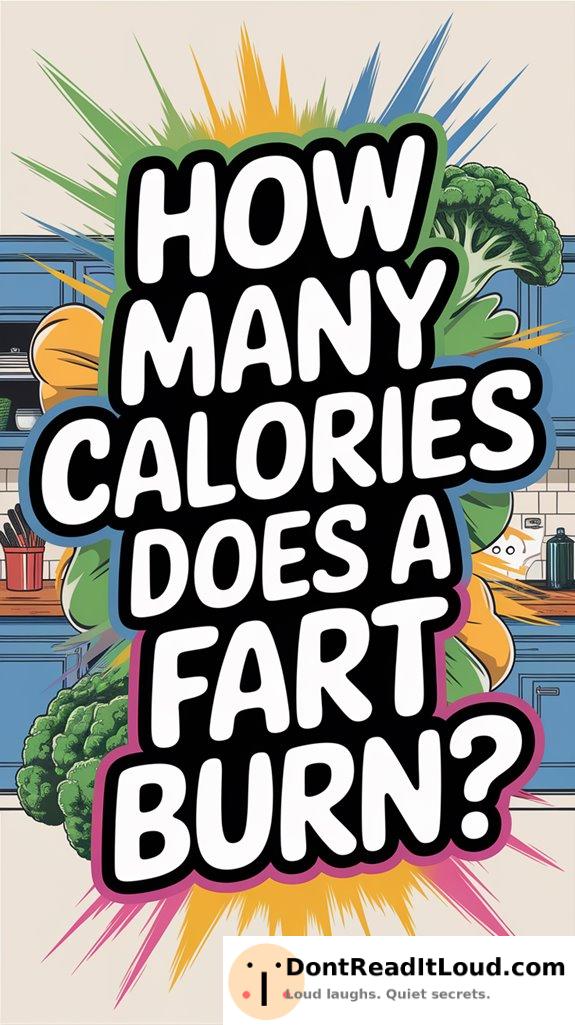
If you’re curious about how many calories a fart burns, the answer is almost none. The claim that farting burns 67 calories isn’t supported by science. Passing gas mainly involves relaxed muscles, so it doesn’t burn significant calories. Feeling lighter afterward is simply relief from bloating, not real weight loss. Interested in more facts or myths about digestion and calorie burning? There’s plenty more to learn.

Have you ever wondered how many calories a fart burns? It’s a quirky question that has sparked curiosity, largely due to an internet claim suggesting that each fart burns 67 calories. This myth, likely originating from a Facebook post or meme around 2012-2015, proposes that farting 52 times a day could lead to losing a pound of fat. However, there’s no scientific research supporting this claim, and it’s widely debunked by health experts.
To understand why this myth persists, let’s explore fart physiology and gas composition. Farting, or flatulence, involves releasing intestinal gas, mostly made from swallowed air and digestive byproducts. When you pass gas, your anal sphincter muscles relax, letting the gas escape. This is a mostly passive process that happens naturally, without much muscle effort. Most people pass gas 8-25 times a day, depending on diet and gut health.
Burning calories usually requires active muscle use or movement. Since farting is mainly about muscle relaxation, it uses a negligible amount of energy. It’s not a form of exercise, nor will it help you lose weight. Studies show there’s no significant calorie burn from normal flatulence.
If you try to force out a fart by straining your muscles, you might burn one or two calories at most. Even then, the energy used is so minor it won’t matter for weight loss. Straining to fart isn’t healthy and isn’t recommended. Straining to fart may engage muscles slightly, potentially burning negligible calories.
Digestion does burn calories through the Thermic Effect of Food (TEF), which accounts for 10-15% of daily energy use. However, farting itself is unrelated to TEF and doesn’t burn calories.
The feeling of lightness after farting is relief from bloating, not actual weight or fat loss. Releasing gas simply decreases pressure in your abdomen, which feels good but doesn’t affect your body weight.
What a fart is made of—like nitrogen or hydrogen—doesn’t matter for calorie burn. The sound or volume of a fart also has no effect on energy use. If you fart more during exercise, it’s because movement can help push gas out.
If you notice more gas along with unexplained weight loss, see a doctor, as this could signal a health issue like SIBO or Celiac disease.
For comparison, breathing burns more energy—about one calorie per minute—than farting. So, while passing gas brings relief, it won’t help you lose weight.
Conclusion
Curious if passing gas helps you burn calories? In reality, farting uses very little energy and doesn’t make a difference to your calorie burn. The muscle movement involved is slight and insignificant. For effective calorie burning, try activities like walking or dancing. Focus on healthy habits to support your overall well-being.



